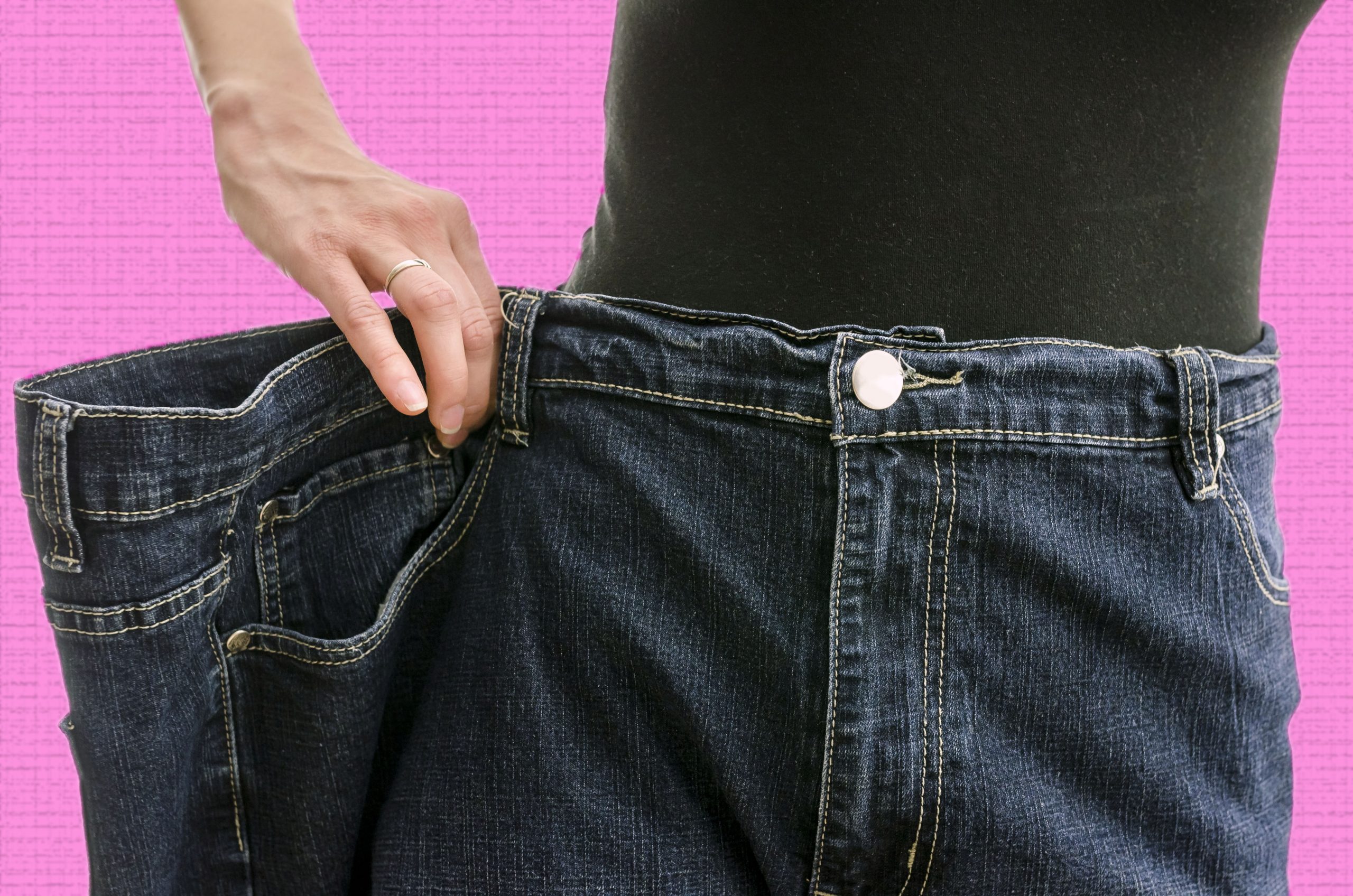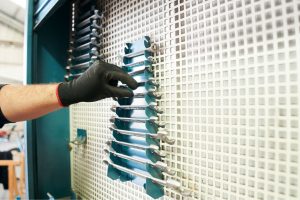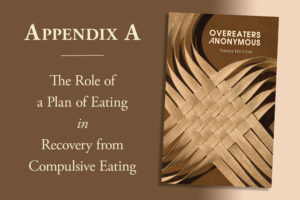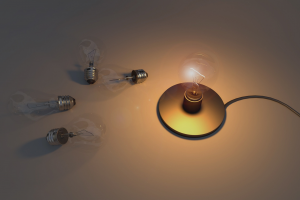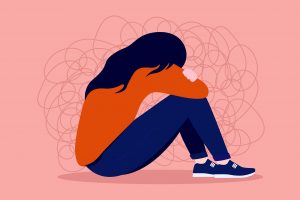I am a grateful recovering compulsive overeater, bulimic, and emotional eater.
What it was like
Like so many fellow OA members, my issues with food began in childhood. I began compulsive and emotional overeating in reaction to my parents’ alcoholism and my severe body image issues. I developed self-esteem issues due to my chunky body shape, and my severe this only turned me further towards the food.
In high school, I discovered bulimia. I thought that I had invented it. I felt like a genius. I would restrict my food intake all day, then feast on foods I knew were easy to throw up again. This was effective in the short term, but it quickly spiraled out of control, and soon I was consuming food and throwing it up all day long. My weight increased due to the compulsive bingeing, and I ballooned to 114 kilograms (251 lbs) on my short, 164-centimeter (5’ 4.5”) frame. I remained obese through my 20s and into my 30s. It was a self-defeating cycle of eating because I was feeling profoundly disturbed about my weight.
In 2008, I decided to have a gastric band weight-loss surgery. I just made the decision and booked the surgery without doing any of the recommended counseling. I achieved a loss of 25 kilograms (55 lbs) for a brief period but my weight ended up stabilized at 95–100 kilograms (209–220 lbs).
In 2009, I got married and commenced four years of in-vitro fertilization treatments. This was the healthiest I had ever been, and I even had my gastric band loosened so I could ensure an adequate and balanced diet during my fertility treatment. I knew I had to take care of the body that would be growing another person. Somehow, I was able to take care of myself for their sake, even though I had not been able to look after my body for myself. I achieved a pregnancy in 2013 and gave birth to my son at the end of that year.
In 2018, I noticed I was slowly gaining weight and experienced weight-related health issues, including hypertension, gout, varicose veins, and acid reflux, so I decided to get my gastric band tightened. Unfortunately, I developed cellulitis, a bacterial infection, as a result of the adjustment procedure, and this necessitated removal of the gastric band.
My weight continued to creep up over the next few years, and I decided to investigate bariatric surgery for weight loss. This time around, I put more effort into researching the surgery, and I engaged in the psychological and nutritional support recommended for success. In May 2021, I had gastric bypass surgery. I felt confident that I had done my research: at 100 kilograms (220 lbs) and 45 years of age, I was relatively young and fit for a bariatric patient, and due to my modest starting weight, I had low risk factors. I believed I would sail through the surgery and be back at work in no time. Unfortunately, I experienced post-surgical complications, namely a 4-liter (1-gallon) arterial bleed into my abdomen. I feared for my life and was relieved to wake up in intensive care a few days later.
While my recovery was slowed by this setback, my response to the surgery was great. I adjusted quickly to the physical restriction and emotional realities of the surgery because of my previous experience with the gastric band. The weight melted away, and I felt like the clock had been turned back 15 years. My weight-related health issues no longer troubled me, and I was pleasantly surprised by my new sense of vitality at my new stable weight at 75 kilograms (165 lbs).
What happened?
These last two years have been a massive learning curve for me. While it was exciting to be getting fitter and healthier, I started struggling emotionally with getting physically smaller. I struggled with the comments about the weight I was losing and the flirty attention I was receiving. The weight loss triggered childhood issues with body image, and without the additional weight, I felt vulnerable and unprotected. My struggles were compounded by extreme work stress, Covid, and dealing with my near-death experience following the gastric bypass surgery.
Unfortunately, I turned to alcohol to cope. (I have since discovered bariatric patients are particularly susceptible to alcohol dependence following surgery.) In my case, I found I couldn’t use food to soothe myself, but I could certainly drink. The alcohol hit me twice as hard and twice as fast due to my altered metabolism. I quickly realised I was in danger and sought the help of another fellowship. I soon discovered their online meetings, but early in my recovery, I identified food as my original drug of choice. Soon, Overeaters Anonymous became my primary fellowship, and I spent hours searching for like-minded fellows in a wide range of OA meetings. I got a sponsor and started using the OA Tools with good effect.
What it’s like now
I recently visited my weight-loss surgeon for a routine follow-up. He looked at my pathology results and said I am now biochemically normal. He asked about what I was doing, and I told him I am working a program through Overeaters Anonymous. He said he was familiar with OA and encouraged me to keep it up. He accepted my offer to provide an OA public information poster for patients in the waiting room.
The OA program and Tools have provided the structure I need to develop a sensible healthy eating plan, which I’d never had before. The Fellowship of OA has provided camaraderie and support. I realize I am not terminally unique: I see now that my feelings and behaviors are unfortunately common to many compulsive eaters, but we can learn from each others’ experience, strength and hope. My membership in OA has set me on a spiritual journey. I identify as a member of OA by virtue of my desire to stop eating compulsively.
I see now that my feelings and behaviors are unfortunately common to many compulsive eaters, but we can learn from each others’ experience, strength and hope.
Encouraged by the acknowledgement agnostic and atheist members in our recovery literature, I have become more attuned to my spiritual beliefs. I feel I have negotiated a way to remain a member of OA while rejecting the notion of a higher power. Instead, I have a sponsor, and I am working a twelve-step program outside OA that aligns with my secular spirituality. I engage with a food accountability buddy via email, which shines light on my food choices and habits, which used to be my chaotic and dirty little secret.
I am enjoying early recovery and sobriety, and I am focusing on my health, food plan, and exercise. I am learning I can handle the emotions that used to drive me to the food or to alcoholic drink. I know that if I remain on this path, I will lose the weight gained from guzzling beer in recent months. I am grateful for the lessons I have learned from my journey so far. This time, I look forward to enjoying a fitter, smaller body, and I hope I can manage—and maybe even seek—the attention of others.
Gastric bypass is not a magic bullet. It is a physical tool. OA has opened my mind to holistic recovery, and for that I am eternally grateful.
—Anonymous

